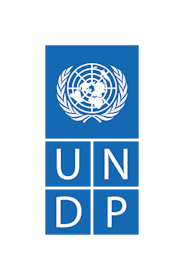The Integrated National Financing Framework (INFF) Facility launched its flagship report, ‘Making Finance Work for People and Planet: How Countries are Building their Sustainable Finance Ecosystem through Integrated National Financing Frameworks’ at an event on the sidelines of the ECOSOC Financing for Development Forum in UN HQ New York. The report underscores the crucial role of country-led, impact-oriented financing strategies in accelerating progress toward the Sustainable Development Goals (SDGs).
According to the report, INFFs are proving instrumental in building a more sustainable, inclusive financing ecosystem at the country level and can be seen as one of the key successes of the 2015 Addis Ababa Action Agenda where they were first introduced.
The new report takes stock of the progress with INFFs to date and the outlook and priorities for the future. To date, 86 countries are using the INFF approach to strengthen financing for sustainable development. Thirteen national and subnational governments have an operational financing strategy, and more than 50 countries are implementing reforms shaped through their INFF. Analysis of reforms implemented by 17 of these countries finds US$16 billion in new finance leveraged for investment in sustainable development and alignment and scope for alignment of more than US$32 billion.
“Countries are using INFFs to catalyse a fundamental shift in the financing ecosystem – aligning government budgets, financial markets and private sector operations with sustainable development, transforming finance into a powerful ally for the planet and its people.” highlighted Achim Steiner, Administrator of United Nations Development Programme (UNDP).
“Country-led and country-owned INFFs can play a key role in translating scaled-up international financing into country-level investments that are aligned with national priorities.” highlighted Li Junhua, Under-Secretary-General for Economic and Social Affairs, United Nations Department of Economic and Social Affairs (UN DESA)
The report provides insights and lessons learned for countries strengthen financing for development using the INFF approach and sets out ten recommendations for the upcoming Fourth International Conference on Financing for Development (FfD4) in June 2025. Key recommendations include:
- Recognising INFFs as the primary financial planning tool at the centre of country-level efforts on financing for development, guiding public, private, domestic and international financing policy for sustainable development.
- Strengthening public and private institutions to better mobilise and align financing with SDGs.
- Encouraging an integrated approach to finance that embeds considerations for climate change, gender equality, and broader sustainability goals across all aspects of financial policy.
The full report can be downloaded here. The executive summary is available in Arabic, Chinese, English, French, German, Portuguese, Russian and Spanish.
About Integrated National Financing Frameworks (INFFs)
INFFs help countries finance their national sustainable development objectives and Sustainable Development Goals (SDGs). INFFs are voluntary and country-led. Through INFFs, countries develop a strategy to mobilise and align financing with all dimensions of sustainability, broaden participation in the design, delivery and monitoring of financing policies, and manage risk. INFFs are embedded within national plans and financing structures, enabling gradual improvements and driving innovation in policies, tools and instruments across domestic and international sources of public and private finance. For more information, please visit: https://inff.org/
About INFF Facility
The INFF Facility is a joint initiative of the United Nations Development Programme (UNDP), the United Nations Department of Economic and Social Affairs (UNDESA), the Organisation for Economic Co-operation and Development (OECD), the European Union, the United Nations Children’s Fund (UNICEF) and the Governments of Italy, Spain and Sweden. It responds to country requests for support in developing INFFs.
The Facility brokers technical assistance, facilitates knowledge exchange and provides access to technical guidance. It helps governments and their partners at the national level realise the potential of the INFF approach to accelerate progress towards national sustainable development objectives and the SDGs.
Publish your content with EB Publishing
It's about who you reach. Get your news, events, jobs and thought leadership seen by those who matter to you.











